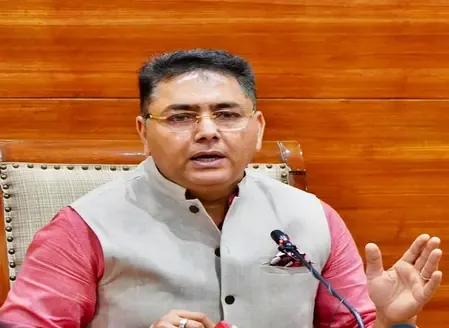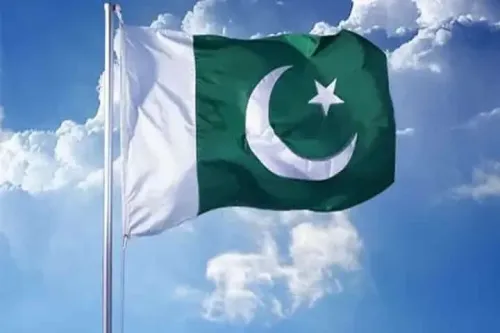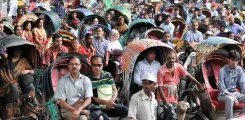How Much Business Did Bhai Dooj Generate Across India?

Synopsis
Key Takeaways
- Bhai Dooj generated Rs 22,000 crore in trade.
- Delhi alone contributed Rs 2,800 crore.
- High demand for local products surged by 50%.
- Key sectors included sweets, gifts, and apparel.
- Supports government initiatives like ‘Vocal for Local’.
New Delhi, Oct 23 (NationPress) The Bhai Dooj festival infused vibrant joy and substantial business activity throughout India this year, resulting in an estimated Rs 22,000 crore in trade, as reported by the Confederation of All India Traders (CAIT) on Thursday.
In Delhi alone, nearly Rs 2,800 crore was added to this impressive festive turnover, as families honored the unique bond between siblings with gifts, sweets, and traditional ceremonies.
The festival, which symbolizes the love and affection shared between siblings, was celebrated with immense enthusiasm across various cities, towns, and villages.
From the application of tilak to exchanging gifts and hosting family gatherings, the day was filled with joy and unity.
Markets in major cities—including Delhi, Mumbai, Jaipur, Ahmedabad, Lucknow, Kolkata, Chennai, Hyderabad, Bengaluru, Pune, and Indore—saw a surge in foot traffic as shoppers rushed to purchase sweets, gifts, clothing, jewelry, and festive essentials.
According to CAIT, key items that experienced heightened demand included sweets, dry fruits, garments, sarees, jewelry, electronics, home appliances, and gift hampers.
Services like travel, cab rentals, restaurants, and hotels also observed a significant increase in business activity.
Praveen Khandelwal, Member of Parliament from Chandni Chowk and National Secretary General of CAIT, emphasized that Bhai Dooj not only fortifies family ties but also plays a crucial role in strengthening India’s economy.
“Bhai Dooj is not just a family celebration; it embodies the essence of Indian culture, fostering love, sacrifice, and respect within family relationships,” he stated.
Khandelwal further noted that this year’s festivities supported the government’s ‘Vocal for Local’ and ‘Aatmanirbhar Bharat’ initiatives, encouraging the promotion of local products.
CAIT indicated that sales of indigenous goods increased by nearly 50 percent compared to the previous year, particularly for traditional sweets, handcrafted gifts, dry fruits, and handloom clothing.
Highlighting the broader economic implications, Khandelwal remarked that such festivals showcase the resilience of India’s non-corporate and non-agricultural sectors, which are vital for driving the country’s growth.
CAIT believes that occasions like Bhai Dooj not only promote social harmony but also rejuvenate India’s traditional market culture by inspiring consumers to opt for local products, thereby reinforcing the spirit of self-reliance in the Indian economy.










